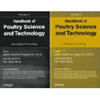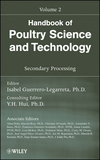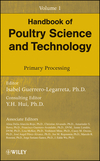U.S. goes to WTO over India poultry export ban

The United States on Tuesday began action at the World Trade Organization to open India's market for poultry meat and eggs, saying an Indian ban on U.S. imports intended to stop the spread of bird flu was not based on sound science, Reuters reports.
"The United States is the world's leader in agricultural safety and we are confident that the WTO will confirm that India's ban is unjustified," U.S. Trade Representative Ron Kirk said in a statement on the U.S. request for consultations.
India's ban in the name of protecting local poultry producers from losses caused by avian influenza is "clearly a case of disguising trade restrictions by invoking unjustified animal health concerns," Kirk said.
Consultations are the first step in the WTO dispute settlement process and parties are encouraged to agree to a solution at this stage. If the matter is not resolved through consultations, the United States may request the establishment of a WTO dispute settlement panel. Litigation at the WTO can take one to two years to conclude.
Associations representing the U.S. poultry and egg industries welcomed the move. The USA Poultry & Egg Export Council (USAPEEC), National Chicken Council (NCC) and National Turkey Federation (NTF) issued a statement applauding the move.
“For years, India has used a variety of non-tariff trade barriers to deny access U.S. poultry to the Indian market,” the joint statement read. “Although international health standards, in particular those of the World Organization for Animal Health (OIE), identify only highly pathogenic stains of avian influenza as warranting trade restrictions, India has long ignored those international norms and has banned poultry imports from the United States or any country that reports any incident of avian influenza, even cases of low pathogenicity. This is a protectionist policy that is inconsistent with accepted international standards, and has no health or safety justification. This policy is particularly problematic in the case of the United States, which is the most efficient poultry producer in the world and the world’s leading exporter of poultry products.
“Despite being one of the 23 founding countries of the General Agreement on Tariffs and Trade (GATT), (an organization founded in 1948 that has now become known as the WTO), India has done as little as any nation to open its border to trade or to abide by multilateral trade rules.
“By conservative estimates, if India’s trade barriers were eliminated, the value of U.S. poultry exports to India each year would surpass $300 million.”
“In our view, India’s posture is thinly guised protectionism,” said USAPEEC President Jim Sumner. “The Indian economy is growing rapidly, as is its standard of living and its consumption of poultry. It is projected that India will soon be the world’s most populous country, and its people must have continued access to an ample supply of affordable protein.”
“U.S. chicken companies and the farm families that grow chickens are committed to the responsible production of food that is safe, affordable and abundant for consumers in the United States and around the world. More than 100 countries recognize this fact and enjoy chicken imported from the United States,” said National Chicken Council President Mike Brown. “As the middle class in India continues to expand, and the market moves more toward commercial poultry, the United States should be afforded the opportunity to compete fairly with our products in this growing market. For far too long, India has been using this non-tariff trade barrier to prohibit U.S. poultry.
“I want to express my gratitude on behalf NCC’s members to Ambassador Kirk and his team, and to Senators Coons (D-Del.) and Isakson (R-Ga.) and Representatives Nunes (R-Calif.) and Carney (D-Del.), for their support in leading a large, bipartisan group of their colleagues in both the Senate and House in working to resolve these longstanding, non-scientifically-based Indian policies that prevent fair trade.”
“On behalf of the turkey industry, we commend U.S. Trade Representative Ron Kirk on the decision to seek formal consultation with the Indian government to resolve the ban on U.S. poultry to India,” said National Turkey Federation President Joel Brandenberger. “India’s trade policies should conform to the scientifically based standards on avian influenza established by World Organization for Animal Health standards, as U.S. turkey producers adhere to these globally recognized standards. The U.S. turkey industry takes great pride in producing safe, nutritious and affordable foods for consumers around the world. Our industry looks forward to providing this affordable, nutrient-rich protein to India.”
Source: Reuters, NTF
Looking for a reprint of this article?
From high-res PDFs to custom plaques, order your copy today!






